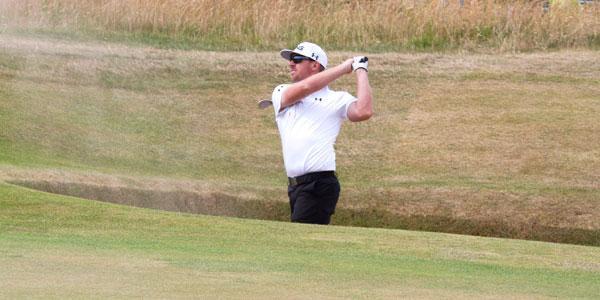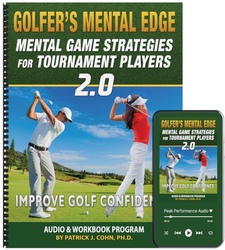
Why Visualization Is Overrated
How do You Cope with Nerves? What do you or your athletes do when feeling nervous or scared before competition? Naturally, you want to relax so you can feel less nervous or tight, right?
You or your athletes might use breathing, stretching, and mental rehearsal to cope better with pressure moments in competition. But is this approach working for you?
Relaxation techniques or positive visualization might not be the answer. However, this is what most athletes do to cope with the nerves.
Using relaxation techniques and visualization is often a Band-Aid for the tension and anxiety–not a long-term solution.
Relaxation May Not Always Work
Here’s a recent example to highlight how relaxation training is not always the answer to anxiety. Michael wrote in to say:
“My whole life I’ve been regarded as having an excellent physical game, but in the big moments, a lot of the time I come up short mentally. I struggle with confidence in big tournaments. I use breathing techniques, visualization, and self-talk to try and consistently bring out the best in my game. Occasionally this works, but more often than not I see myself succumb to the pressure of big moments. What’s the best approach?”
Why are relaxation techniques not working for Michael? Two reasons. He lacks confidence and he’s afraid to lose or perform badly.
My Philosophy About Mental Toughness
If you are a regular reader of our mental game tips, you know my philosophy about improving mental toughness…
High confidence, focus, and composure help athletes develop mental toughness in sports.
Relaxation training is not a long-term solution. Michael needs to work on his confidence and understand why he struggles in pressure moments.
Michael, like with many athletes, has been competing most of his life. Why do many athletes lack confidence despite having great physical skills and 10 or more years of practice and experience in sport?
Michael under performs in completion and now sees himself as a choke. And his solution to the problem–relaxation and visualization–is not working for him.
If you can relate to Michael’s situation, what steps can you take improve confidence and cope better with pressure?
4 Tips for Competitive Confidence
1. Rely on your years of experience for confidence, not the last play or shot. Confidence is based on several years, not immediate performance.
2. Uncover what’s killing your confidence, what I call the confidence-killers, such as doubt, high expectations, self-critical thinking, etc. and over come them.
3. Take greater control of your confidence; don’t leave it to chance. Be proactive with your confidence instead of reactive: allowing your last shot or play affect confidence.
4. Understand that self-confidence comes from within and not other people, that’s why it’s called *SELF* confidence.
If you want to improve your mental game quickly, check out our sports psychology coaching programs for athletes.
Related Sports Psychology Articles
- How to Pros Use Visualization to Improve Success
- How Elite Athletes Use Visualization
- How Visualization Helps Boost Confidence
*Subscribe to The Sports Psychology Podcast on iTunes
*Subscribe to The Sports Psychology Podcast on Spotify
Download a free sports psychology report to improve your mental game!
Learn more about our one-on-one mental game coaching.
Golfer’s Mental Edge

What’s the big sign that your mental game is the weak link in your golf game? When you can’t play consistently as well as when you play a practice or casual round–or your range game is way better than your game on the course. If you suffer from lack of focus, low self-confidence, poor composure or other mental game obstacles on the course, you can’t reach your true potential in golf.
The Golfer’s Mental Edge 2.0 Audio and Workbook program is ideal for any amateur, collegiate, junior, and tour professional golfer.
Golf coaches and instructors would also be wise to teach “The Golfer’s Mental Edge 2.0” principles to their players. This program is perfect for any golfer who wants to improve performance and consistency by managing their mind better on the course.
